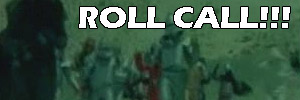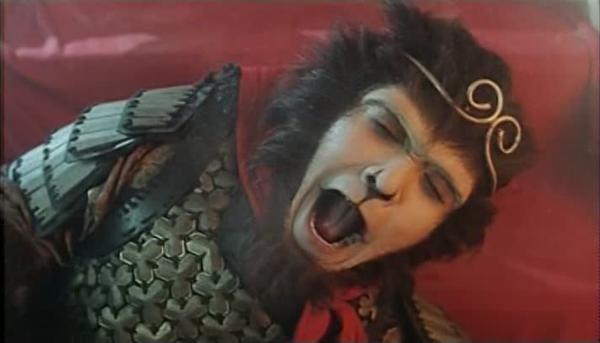A Chinese Odyssey Part Two – Cinderella
aka 西遊記完結篇仙履奇緣 aka Sai yau gei: Daai git guk ji – Sin leui kei yun

1995![]()
Written and directed by Jeff Lau Chun-Wai

Thus continues the fairy tales and romantic adventures of a guy named Joker who is really Monkey King with A Chinese Odyssey Part Two – Cinderella. The sweeping action and epic timescope of the original is expanded on, while the extra time gives us a chance to get to know a few of the characters we saw little of in the first part. Don’t worry, there are generous amounts of ridiculous slapstick, special effects fights,
Part of the fun of these Hong Kong films is the varying quality of the copy that is used for DVDs. In this case, the copy has burnt in subtitles, which calls some characters slightly different names than in Part 1. I’ve done my best to try to rectify the situation, but welcome to planet reality. If you missed the review of A Chinese Odyssey Part One – Pandora’s Box, it is here.

Even more fun, the plot of Part Two is vastly more complicated, and is rendered further difficult because several characters switch bodies in the second half. And yet, despite the zaniness, it works, as actors get more to do and the danger of repetitiveness is staved off for a while. While a tale as large as this can run the risk of becoming far too long, the brisk pace prevents fatigue from setting in. Some reviews I read thought this section was confusing and ruined the film, but I see it more as helping things from getting too stale. And if you try to follow things too logically, your brain will explode, as the timeline gets completely disrupted by all the time travel. Let’s just say there is probably a reality where King Bull opens a casino in Hill Valley…
The lovers on the roof scene at the end has become an iconic shot that is instantly recognized by people who haven’t even seen the movie in years. It’s also one of my favorite moments in Hong Kong cinema, because the whole thing is perfect. The closure of the lovers story, the chance for Monkey King to talk one last time to the woman he loved but cannot love, the looks of the torn emotions of the two characters on the roof, the look back as Monkey King walks away, and especially the music, all making a perfect storm of awesome.

The tales of destined true love that endures lots of hardships and doesn’t usually end in happy endings are common themes in the works of both Lau and Chow. This time they even have characters literally speaking to the heart to learn the heart’s desire and true love. Another common thread in Steve Chow’s films is him having a whole host of women who fall for him. It’s good to be the king! Add to that to his reputation as a playboy and how different the women are in some of Chow’s later films, and you get the feeling there is some sort of hangup about women. But that’s a whole article to itself.
The Chinese Odyssey films would end up becoming so beloved that attempts would be made to recapture the magic. Lau would return with A Chinese Odyssey 2002, and try again with A Chinese Tall Tale, and then Yet Another Pandora’s Box. While each of those films have their own merits, none of them achieve the level of special significance that the originals did. Chow also used the nostalgia of these films to excite everyone with his return to directing for Journey to the West: Conquering the Demons, though that film is so tonally different that they are only connected by the true love theme. Several other adaptations of Journey to the West are in the pipeline, the popularity of the stories will ensure their retelling for generations. Some will attempt to be creative and unique, while others will rely on the past and be lazy and derivative. We may one day see a challenger to the throne, but for now, it is time to hail to the Monkey King, baby!


|




